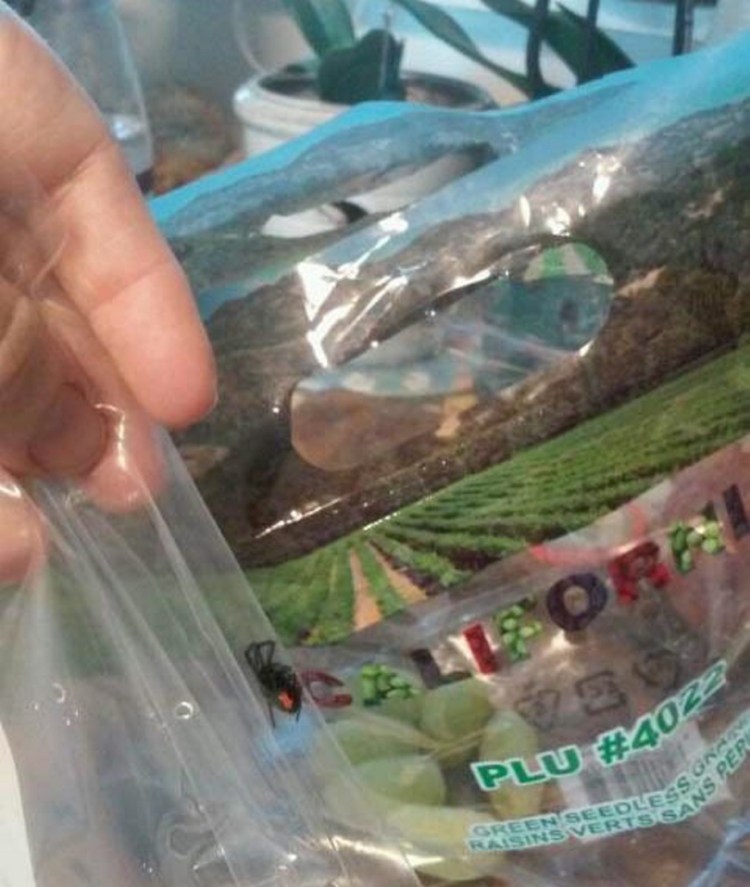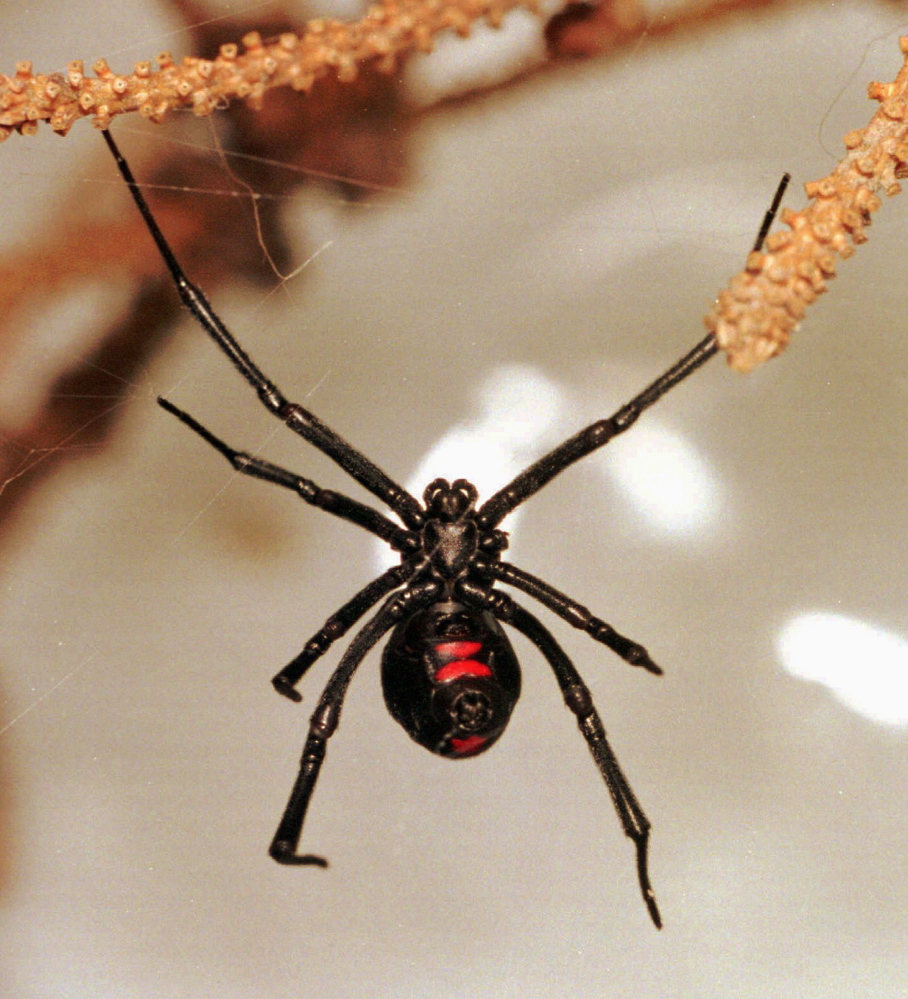A black widow spider that hitched a ride on a bunch of California grapes gave a Portland woman quite a scare.
Melissa Emmons said she bought the seedless green grapes from the Hannaford supermarket at Mill Creek in South Portland. As she was separating them into small bags for freezing, she felt something like a piece of hair on her hand, looked in the bag and saw what appeared to be a spider’s web.
Pulling the bunch out of the bag over her sink, she saw the spider.
“I screamed like a little girl,” said Emmons, 41.
Her boyfriend then sprayed the spider with insecticide, flipping it on its back and revealing the signature red hourglass marking of a black widow.
“He knew what it was,” Emmons said of her boyfriend, who lived in California, where the poisonous spiders are common.
She called the store, and an employee asked her to bring in the dead spider. She did so on Friday morning, she said.
A manager who answered the phone at the supermarket said the store’s grapes had been checked since the report of the spider, but deferred all other questions to the company’s media relations department, where a phone rang unanswered Friday.
Hannaford spokesman Michael Norton said in an email that he wasn’t aware of the situation.
“It would be unusual, but not impossible for something like this to occur,” he wrote.
Incidents of people finding black widow spiders in grapes are not uncommon.
In May, a Vermont woman was bitten by a black widow that crawled out of a bunch of grapes purchased at a Shaw’s supermarket. In 2013, a grocery chain pulled grapes from stores in the Midwest after the spiders were found in bunches bought in several states.
It’s even happened before at Hannaford, a Scarborough-based supermarket chain with 180 stores in five states in the Northeast.
In 2003, a Windham woman found a black widow in grapes bought at the Hannaford store in Falmouth. In 1991, Hannaford stopped selling grapes from a California supplier after a woman found a black widow in a bunch purchased at the Gorham Shop ‘n Save and two more were found in packing crates at a distribution center in South Portland, according to an Associated Press story at the time.
That same week, Stop & Shop had stopped selling California grapes at its stores in southern New England.
Food safety experts have said there has been an increase in insects and other pests found in produce as a result of a reduction in the use of pesticides, some of which have been shown to cause cancer and birth defects.
The state has no record of complaints about black widow spiders found in food, according to John Bott, spokesman for the Maine Department of Agriculture, Conservation and Forestry.
If the department received such a complaint, he said, inspectors from the Division of Quality Assurance and Regulations would look into it to see if there were any food safety violations.
Finding a spider in produce, however, falls into a “gray area,” he said, because it’s not an “actual impurity with the food.”
He said it would be up to the store to respond to the situation, and Hannaford has a good record of doing that quickly.
Bill Marler, a food safety advocate and attorney from Seattle, said he wouldn’t expect the store to pull all of its grapes, but it should wash and check them again and contact the supplier.
The black widow spider, predominantly found in the southern and western United States, can be identified by its shiny black body and red hourglass shape on its underside.
According to the U.S. National Library of Medicine, 15 minutes to an hour after being bitten by a black widow spider, a person can experience dull muscle pain that spreads from the area of the bite to the entire body.
Other symptoms may include anxiety, muscle cramps and weakness, difficulty breathing, high blood pressure and sweating. Pregnant women may go into premature labor.
Severe symptoms last a couple of days, while milder ones may persist for weeks. Death is rare, but young children, the elderly and the extremely ill are at greater risk.
A person bitten by a black widow spider should wrap ice in a washcloth, place it on the affected area and seek emergency medical attention, according to the Library of Medicine.
Emmons isn’t swearing off eating grapes or shopping at the store, but hoped something would be done to ensure the same thing doesn’t happen to someone else – with a potentially worse outcome.
“I just don’t want anyone to get hurt,” she said.
Send questions/comments to the editors.





Comments are no longer available on this story